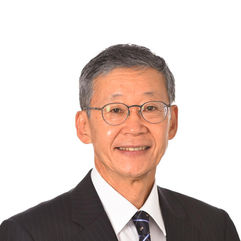

United Nations Responsible Business and Human Rights Forum, Asia-Pacific

COLLABORATING PARTNER SESSION
24 September | 09:30-17:00 ICT
AICHR-SEANF Regional Workshop: Sharing good practices and effective remedy for migrant workers in business and human rights in ASEAN
Organized by:
-
ASEAN Intergovernmental Commission on Human Rights
-
South East Asia National Human Rights Institutions Forum
-
Danish Institute for Human Rights
-
Mission of Japan to ASEAN
-
UN Development Programme
Please note that this event is by invitation only
At the global level, the United Nations Guiding Principles on Business and Human Rights (UNGPs) has been developed to address the challenge posed by businesses that are now recognized as having the responsibility to respect human rights alongside States that are the primary duty bearers. Endorsed by the UN Human Rights Council in 2011, the UNGPs provide an authoritative framework for actions to safeguard human rights in business contexts, clarifying what is expected by states and businesses to prevent and address impacts on human and environmental rights
arising from business activities.
ASEAN Intergovernmental Commission on Human Rights (AICHR) recognizes that businesses can create opportunities that enhance the livelihood of the peoples, workers, and the communities around them while at the same time their practices can cause negative impacts or detriments internally and externally. The adverse impacts are to be discouraged, mitigated, and prevented through the adoption of effective and comprehensive strategies on business and human rights.
The UNGPs are based on fundamental United Nations human rights standards and the ILO labour standards. In addition, the UN’s 2030 Agenda for Sustainable Development, underlines that private sector contribution to the SDGs will be fostered while protecting labour rights, environmental rights, and health standards, in accordance with relevant international standards and agreements and other ongoing initiatives.
Access to effective remedy is a core component of the UNGPs. Guiding Principle 1, Pillar I, recalls States to take “appropriate steps to prevent, investigate, punish and redress” business-related human rights abuses within their territory and/or jurisdiction. Guiding Principle 22, in Pillar II, provides that where “business enterprises identify that they have caused or contributed to adverse impacts, they should provide for or cooperate in their remediation through legitimate processes.” Guiding Principle 25, in Pillar III on access to remedy, reminds States to “take appropriate steps to ensure “that those affected by business-related human rights abuses within their territory and/or jurisdiction have access to effective remedy.”
Based on its Terms of Reference, AICHR is mandated to develop common approaches and positions on human rights matters of interest to ASEAN through consultation with other national, regional, and international entities concerned with the promotion and protection of human rights in ASEAN region and at the international level. This project will enhance the understanding of how business practices can create opportunities for the protection and promotion of human rights, especially vulnerable groups such as migrant workers while finding ways and means to mitigate or prevent adverse impacts of business on human and environmental rights. It will deliberate on the three types of mechanisms envisaged by the UNGPs to provide access to effective remedy in business-related human rights abuses: state-based judicial mechanisms, state-based non-judicial grievance mechanisms, and non-state-based grievance mechanisms.
This workshop will serve as a platform for dialogue and learning among NHRIs and AICHR partners about business and human/environmental rights, enhancing the promotion and protection of human rights as a shared responsibility of all stakeholders. A preliminary study on corporate human rights conduct in AMS with NHRIs will be conducted and presented at this workshop.
Objectives
-
To raise awareness on the implementation of UNGPs and access to effective remedy.
-
To provide the venue for consultation among AICHR, ASBs, NHRIs and relevant bodies, as well as other stakeholders to strengthen the promotion and implementation of UNGPs and access to effective remedy for migrant workers in ASEAN and beyond.























